#St Helena Island
Explore tagged Tumblr posts
Text

Tombee Plantation, St Helena Island SC, was built in 1795 by Thomas Benjamin “Tom B” Chaplin It is the oldest existing house on St. Helena Island. The home was passed down through the family until 1861 when the Chaplins left Tombee with the advancement of the Union troops.
In 1863 the federal government purchased the plantation as part of the Port Royal Experiment. Tombee was divided into tracts during this time, with much of the land being owned by the descendants of freed slaves until 1971.
Years later the house fell into disrepair but Tombee has undergone complete renovation and restoration. The current owners are acclaimed restorers and have spared no expense modernizing and bringing back to life this special place.
17 notes
·
View notes
Text

C'est fini: Napoléon Ier à Sainte-Hélène | It's over: Napoleon I on St Helena
by Oscar Rex
#napoléon bonaparte#napoleon bonaparte#art#oscar rex#st helena#saint helena#island#exile#prisoner#napoleon#napoléon#history#europe#european#france#french#atlantic ocean#atlantic#napoleonic#napoleonic wars#napoleon i#bonaparte#emperor
123 notes
·
View notes
Text
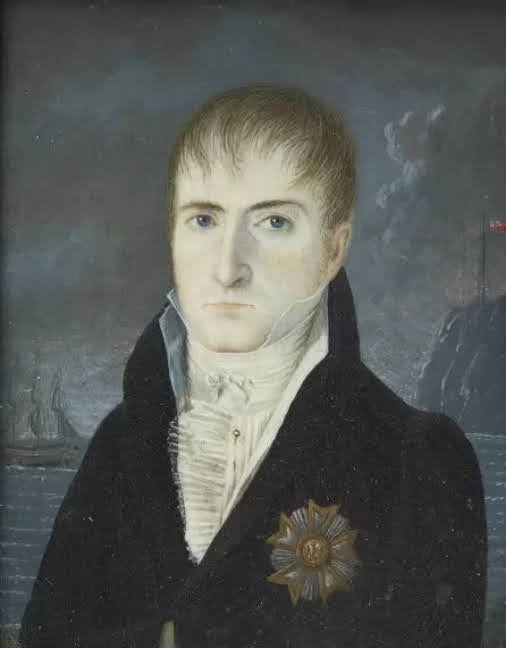
😭😭😭😭😭😭 This is a portrait of Napoleon from 1820, during the last year of his life. I’ve never seen a portrait of him this late in his life. He looks exactly how he was described at the time: thin, gaunt and pale. He was suffering from a painful and terminal illness.
#Portrait of Napoleon Bonaparte on the island of Saint Helena 1820 Captain Dodgin#Captain dodgin#😢😢😢#Napoleon#napoleon bonaparte#napoleonic era#napoleonic#portrait#first french empire#19th century#french empire#france#history#art#Saint Helena#st helena#st. helena#french revolution#frev#french history#Bonaparte#napoleón bonaparte#1800s#british history
57 notes
·
View notes
Text
vacation dump










#descriptions:#roadside coffee shop in SC#vermillion flycatcher!!!!#centuries old graves at the chapel of ease on st helena island#savannah river at night#downtown savannah#aquatic hermit crabs :)#closeup of the chapel of ease’s tabby concrete wall#abandoned mausoleum at the chapel of ease#osprey nest in a parking lot#burkes beach hilton head island
4 notes
·
View notes
Text
I need y’all attention for just a few minutes, I know I haven’t been on here much but if y’all could please sign and share this petition to show support for the Gullah Geechee community!
Here is a screenshot of what is going on.
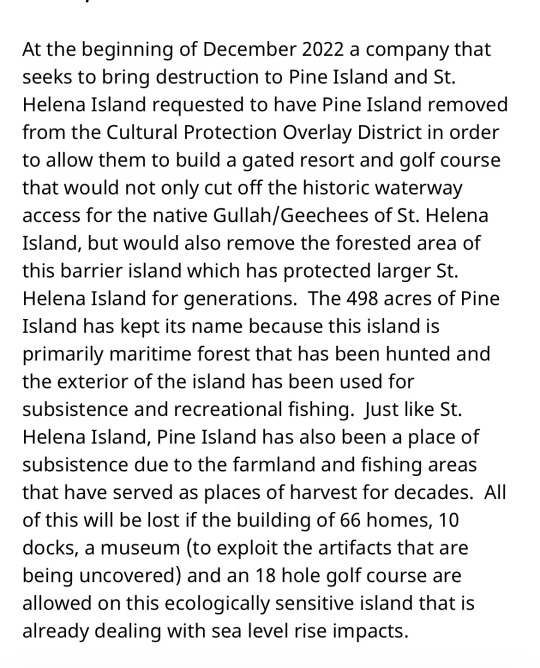

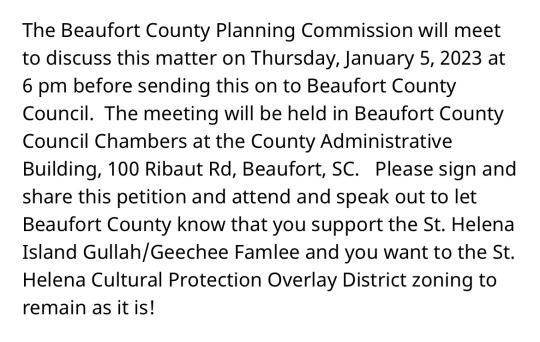
1K notes
·
View notes
Photo
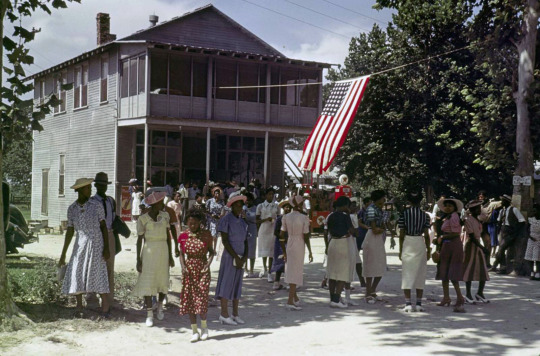
Fourth of July celebration on St. Helena Island, South Carolina, 1939.
1 note
·
View note
Text

Same-sex marriage in 2003 vs. 2013 vs. 2023
(20 years of change)
More info below:
----
2003:
Marriage : Netherlands, Belgium, British Columbia (CA), Ontario (CA)
Civil unions : France (including overseas territories), Germany, Denmark, Iceland, Sweden, Norway, Finland, Greenland, Rio Negro (AR), Ciudad de Buenos Aires (AR), California (US), New York (US), Hawaii (US), Vermont (US), Canary Islands (ES), Aragon (ES), Catalonia (ES), Andalusia (ES), Extremadura (ES), Castilla-La Mancha (ES), Castilla-Leon (ES), Madrid (ES), Valencia (ES), Asturias (ES), Basque Country (ES), Navarre (ES), Balearics (ES), Quebec (CA), Alberta (CA), Manitoba (CA), Nova Scotia (CA), Geneva (CH), Zurich (CH), Portugal.
----
2013:
Marriage : Netherlands, Belgium, Canada, Brazil, Uruguay, Argentina, South Africa, Spain, Portugal, France (including overseas territories), Denmark, Norway, Sweden, Iceland, New Zealand, Washington (US), California (US), New Mexico (US), Minnesota (US), Iowa (US), Maryland (US), DC (US), New Jersey (US), Delaware (US), New York (US), Connecticut (US), Rhode Island (US), Vermont (US), Massachusetts (US), New Hampshire (US), Maine (US), Hawaii (US), Mexico City (MX), Quintana Roo (MX).
Civil unions : Greenland, Colombia, Ecuador, Merida (VZ), United Kingdom, Ireland, Germany, Czech Republic, Austria, Finland, Hungary, Slovenia, Croatia, Switzerland, Luxembourg, Liechtenstein, Australia
Recognizes marriages performed abroad : All 32 Mexican states and Israel
----
2023:
Marriage : Netherlands (including overseas territories), Belgium, United States, Canada, Mexico, Costa Rica, Cuba, Puerto Rico, Colombia, US Virgin Islands, Ecuador, Brazil, Argentina, Uruguay, Chile, Malvinas/Falklands, France (including overseas territories), Spain, Portugal, Andorra, Germany, Slovenia, Switzerland, Austria, Malta, Guernsey, Jersey, United Kingdom, Isle of Man, Ireland, Gibraltar, Norway, Denmark, Sweden, Finland, Iceland, Greenland, Luxembourg, Faroe Islands, South Africa, Australia, New Zealand, Taiwan, Northern Mariana Islands, Guam, St. Helena, Pitcairn Islands, Gibraltar.
Civil unions : Bolivia, Italy, Cayman Islands, Bermuda, Aruba, Curaçao, Czech Republic, Hungary, Croatia, Montenegro, Greece, Cyprus, Estonia, Liechtenstein
Recognizes marriages performed abroad : Namibia, Israel, Nepal, American Samoa
----
Future :
Same-sex marriage is under consideration by the legislature or the courts in Aruba, Curaçao, the Czech Republic, Estonia, Greece, India, Japan, Liechtenstein, Namibia, the Navajo Nation, Nepal, Thailand, and Venezuela, and all countries bound by the Inter-American Court of Human Rights (IACHR), which includes Barbados, Bolivia, Dominican Republic, El Salvador, Guatemala, Haiti, Honduras, Nicaragua, Panama, Paraguay, Peru, and Suriname.
Civil unions are being considered in a number of countries, including Lithuania, Peru, the Philippines, South Korea, Ukraine, China, Hong Kong, Japan, Latvia, Panama, Romania, Serbia, Slovakia, Thailand, and Venezuela.
----
#map#maps#cartography#usa#latin america#mexico#data#americas#geography#europe#gay#lgbt#gay marriage#lgbtq#lgbtq history#lgbt history#history#lesbian#sapphic#marriage#pride
7K notes
·
View notes
Text
Reading list for Afro-Herbalism:
A Healing Grove: African Tree Remedies and Rituals for the Body and Spirit by Stephanie Rose Bird
Affrilachia: Poems by Frank X Walker
African American Medicine in Washington, D.C.: Healing the Capital During the Civil War Era by Heather Butts
African American Midwifery in the South: Dialogues of Birth, Race, and Memory by Gertrude Jacinta Fraser
African American Slave Medicine: Herbal and Non-Herbal Treatments by Herbert Covey
African Ethnobotany in the Americas edited by Robert Voeks and John Rashford
Africanisms in the Gullah Dialect by Lorenzo Dow Turner
Africans and Native Americans: The Language of Race and the Evolution of Red-Black Peoples by Jack Forbes
African Medicine: A Complete Guide to Yoruba Healing Science and African Herbal Remedies by Dr. Tariq M. Sawandi, PhD
Afro-Vegan: Farm-Fresh, African, Caribbean, and Southern Flavors Remixed by Bryant Terry
Barracoon: The Story of the Last “Black Cargo” by Zora Neale Hurston
Big Mama’s Back in the Kitchen by Charlene Johnson
Big Mama’s Old Black Pot by Ethel Dixon
Black Belief: Folk Beliefs of Blacks in America and West Africa by Henry H. Mitchell
Black Diamonds, Vol. 1 No. 1 and Vol. 1 Nos. 2–3 edited by Edward J. Cabbell
Black Faces, White Spaces: Reimagining the Relationship of African Americans to the Great Outdoors by Carolyn Finney
Black Food Geographies: Race, Self-Reliance, and Food Access in Washington, D.C. by Ashanté M. Reese
Black Indian Slave Narratives edited by Patrick Minges
Black Magic: Religion and the African American Conjuring Tradition by Yvonne P. Chireau
Black Nature: Four Centuries of African American Nature Poetry edited by Camille T. Dungy
Blacks in Appalachia edited by William Turner and Edward J. Cabbell
Caribbean Vegan: Meat-Free, Egg-Free, Dairy-Free Authentic Island Cuisine for Every Occasion by Taymer Mason
Dreams of Africa in Alabama: The Slave Ship Clotilda and the Story of the Last Africans Brought to America by Sylviane Diouf
Faith, Health, and Healing in African American Life by Emilie Townes and Stephanie Y. Mitchem
Farming While Black: Soul Fire Farm’s Practical Guide to Liberation on the Land by Leah Penniman
Folk Wisdom and Mother Wit: John Lee – An African American Herbal Healer by John Lee and Arvilla Payne-Jackson
Four Seasons of Mojo: An Herbal Guide to Natural Living by Stephanie Rose Bird
Freedom Farmers: Agricultural Resistance and the Black Freedom Movement by Monica White
Fruits of the Harvest: Recipes to Celebrate Kwanzaa and Other Holidays by Eric Copage
George Washington Carver by Tonya Bolden
George Washington Carver: In His Own Words edited by Gary Kremer
God, Dr. Buzzard, and the Bolito Man: A Saltwater Geechee Talks About Life on Sapelo Island, Georgia by Cornelia Bailey
Gone Home: Race and Roots through Appalachia by Karida Brown
Ethno-Botany of the Black Americans by William Ed Grime
Gullah Cuisine: By Land and by Sea by Charlotte Jenkins and William Baldwin
Gullah Culture in America by Emory Shaw Campbell and Wilbur Cross
Gullah/Geechee: Africa’s Seeds in the Winds of the Diaspora-St. Helena’s Serenity by Queen Quet Marquetta Goodwine
High on the Hog: A Culinary Journey from Africa to America by Jessica Harris and Maya Angelou
Homecoming: The Story of African-American Farmers by Charlene Gilbert
Hoodoo Medicine: Gullah Herbal Remedies by Faith Mitchell
Jambalaya: The Natural Woman’s Book of Personal Charms and Practical Rituals by Luisah Teish
Just Medicine: A Cure for Racial Inequality in American Health Care by Dayna Bowen Matthew
Leaves of Green: A Handbook of Herbal Remedies by Maude E. Scott
Like a Weaving: References and Resources on Black Appalachians by Edward J. Cabbell
Listen to Me Good: The Story of an Alabama Midwife by Margaret Charles Smith and Linda Janet Holmes
Making Gullah: A History of Sapelo Islanders, Race, and the American Imagination by Melissa Cooper
Mandy’s Favorite Louisiana Recipes by Natalie V. Scott
Medical Apartheid: The Dark History of Medical Experimentation on Black Americans from Colonial Times to the Present by Harriet Washington
Mojo Workin’: The Old African American Hoodoo System by Katrina Hazzard-Donald
Motherwit: An Alabama Midwife’s Story by Onnie Lee Logan as told to Katherine Clark
My Bag Was Always Packed: The Life and Times of a Virginia Midwife by Claudine Curry Smith and Mildred Hopkins Baker Roberson
My Face Is Black Is True: Callie House and the Struggle for Ex-Slave Reparations by Mary Frances Berry
My Grandmother's Hands: Racialized Trauma and the Pathway to Mending Our Hearts and Bodies by Resmaa Menakem
On Her Own Ground: The Life and Times of Madam C.J. Walker by A'Lelia Bundles
Papa Jim’s Herbal Magic Workbook by Papa Jim
Places for the Spirit: Traditional African American Gardens by Vaughn Sills (Photographer), Hilton Als (Foreword), Lowry Pei (Introduction)
Post Traumatic Slave Syndrome by Dr. Joy DeGruy
Rooted in the Earth: Reclaiming the African American Environmental Heritage by Diane Glave
Rufus Estes’ Good Things to Eat: The First Cookbook by an African-American Chef by Rufus Estes
Secret Doctors: Ethnomedicine of African Americans by Wonda Fontenot
Sex, Sickness, and Slavery: Illness in the Antebellum South by Marli Weiner with Mayzie Hough
Slavery’s Exiles: The Story of the American Maroons by Sylviane Diouf
Soul Food: The Surprising Story of an American Cuisine, One Plate at a Time by Adrian Miller
Spirituality and the Black Helping Tradition in Social Work by Elmer P. Martin Jr. and Joanne Mitchell Martin
Sticks, Stones, Roots & Bones: Hoodoo, Mojo & Conjuring with Herbs by Stephanie Rose Bird
The African-American Heritage Cookbook: Traditional Recipes and Fond Remembrances from Alabama’s Renowned Tuskegee Institute by Carolyn Quick Tillery
The Black Family Reunion Cookbook (Recipes and Food Memories from the National Council of Negro Women) edited by Libby Clark
The Conjure Woman and Other Conjure Tales by Charles Chesnutt
The Home Place: Memoirs of a Colored Man’s Love Affair with Nature by J. Drew Lanham
The Jemima Code: Two Centuries of African American Cookbooks by Toni Tipton-Martin
The President’s Kitchen Cabinet: The Story of the African Americans Who Have Fed Our First Families, from the Washingtons to the Obamas by Adrian Miller
The Taste of Country Cooking: The 30th Anniversary Edition of a Great Classic Southern Cookbook by Edna Lewis
The Tuskegee Syphilis Study: An Insiders’ Account of the Shocking Medical Experiment Conducted by Government Doctors Against African American Men by Fred D. Gray
Trace: Memory, History, Race, and the American Landscape by Lauret E. Savoy
Vegan Soul Kitchen: Fresh, Healthy, and Creative African-American Cuisine by Bryant Terry
Vibration Cooking: Or, The Travel Notes of a Geechee Girl by Vertamae Smart-Grosvenor
Voodoo and Hoodoo: The Craft as Revealed by Traditional Practitioners by Jim Haskins
When Roots Die: Endangered Traditions on the Sea Islands by Patricia Jones-Jackson
Working Conjure: A Guide to Hoodoo Folk Magic by Hoodoo Sen Moise
Working the Roots: Over 400 Years of Traditional African American Healing by Michelle Lee
Wurkn Dem Rootz: Ancestral Hoodoo by Medicine Man
Zora Neale Hurston: Folklore, Memoirs, and Other Writings: Mules and Men, Tell My Horse, Dust Tracks on a Road, Selected Articles by Zora Neale Hurston
The Ways of Herbalism in the African World with Olatokunboh Obasi MSc, RH (webinar via The American Herbalists Guild)
2K notes
·
View notes
Text
What struck me almost immediately about this anecdote was: Captain Basil Hall must have been utterly ignorant about the "peculiar" situation of the Loo Choo people, who were in fact the inhabitants of the Kingdom of Ryūkyū, better known nowadays as Okinawa. Since the islands that make up Ryūkyū are in the Northern hemisphere, they are not in the South Pacific (that would have approached Melanesia and Australia), but the North Pacific, more specifically the China Sea.

A little history on Okinawa/the Ryūkyū Islands: it was an independent kingdom that was both a vassal state to China (from the Ming Dynasty onwards, specifically 1429) and Japan (through the invasion of the Shimazu clan from the Satsuma Domain, from 1609 onwards). Long story short, it remained (semi-)automous until was annexed by the Japanese Empire during the Meiji Era in 1879.
Due to the kingdom's proximity to Confucian civilisations, the government and inhabitants of Ryūkyū naturally adopted Confucian principles. Captain Hall, who visited the capital of Ryūkyū in 1816 by the ship Lyra, seemed to view this island kingdom as some kind of pacifist haven. After doing some light digging, Hall and John M’Leod, physician on board the Lyra's fellow expedition ship the Alceste, both wrote accounts that promoted this view. As Gregory Smits describes in the The Asia-Pacific Journal article "Examining the Myth of Ryukyuan Pacifism", an article that also provided the image above:
These accounts gushed with praise over the kindness, gentleness, and intelligence of the Okinawans, whose behavior compared especially well with the alleged boorishness and arrogance of “the Chinese.” According to Hall and M’Leod, Okinawa was a land of peace and serenity. Its residents bore no weapons and its people committed no crimes. According to Hall: “We never saw any punishment inflicted at Loochoo; a tap with a fan, or an angry look, was the severest chastisement ever resorted to, as far as we could discover.”
Hall is unlikely to have fabricated his his account—M'Leod's testimony matched his. However, their accounts of "Loo Choo" was limited to what they saw, as the Ryūkyū government applied their experience in keeping a careful balance of power between their Chinese and Japanese neighbours to the Europeans. Also from the article:
One general point to bear in mind regarding the image of Ryukyu as a pacifist kingdom is that by the nineteenth century Ryukyuan officials had become extremely adept at manipulating the kingdom’s image vis-à-vis outsiders. The most important group of outsiders was Chinese investiture envoys (sakuhōshi). Let us consider the case of vice-envoy Li Dingyuan in 1800. In Shi Ryūkyū ki, Li’s detailed record of his stay in Ryukyu, he described with much enthusiasm the plot of the kumiodori play Kōkō no maki (Tale of filial piety) and concluded with an exclamation that heaven greatly rewards those who give their lives for filial piety. [...] The play was first shown to Chinese envoys in 1756. In Li’s case, just before his departure, royal envoys unexpectedly showed up with fans, incense, and other gifts. It was the birthday of his mother in China, but Li had not told anyone in Ryukyu about it. Ryukyuan officials had done their research well, and Li was most impressed by this display of filial consciousness on their part. My point in mentioning Li’s experience in Ryukyu is simply to emphasize the skill with which Ryukyuan officials worked to portray positive images to foreign visitors. In classic Confucian values, a state governed by virtue would have little or no need for coercive force. Ryukyuans presented this same general image to European visitors as well as Chinese.
As for the Ryūkyū peoples' state of military affairs, Hall seems to imply an eternal state of pacifism with his use of present tense in describing the "Loo Choo". This smacks of him trying to emphasise a sort of moral high ground to the "warmonger" Napoleon. However, it would be a complete lie to say the kingdom of Ryūkyū had neither blades nor firearms before, during, or after Napoleon's time. The article goes into great detail about the military affairs that existed before the Kingdom became a Japanese vassal state, especially the state of the artillery in the 15th century, and the Kingdom did not just appear out of thin air—it was unified through conflict and strife. Have a read if interested—it serves as a good introductory summary.
In the end, I don't think Napoleon brought Hall's tales entirely—he too came from an island state, tossed between two larger states, that had once seceded from its rulers with dreams of remaining an independent republic. Surely, if he had known the historical context of the Kingdom of Ryūkyū, he would have understood how its people felt having to live between two beasts, and the behaviours that would produce—before he gave up the dream of Corsican independence, that is.
The Emperor is baffled by islanders of the South Pacific
Having settled where Loo Choo was, he went on to enquire about the people, making some amusing comments on their peculiarities. On telling him that they had no arms, he said, "No arms—you mean no cannon, but they have muskets?" I said not only have they no cannon, they have no swords nor spears. "Ni poignards?" asked he. "No," I replied, "We never saw any kind of warlike weapon." "Mais," said Bonaparte in a loud voice and with a manner more vehement and impatient than I had seen before, "Mais sans armes comment se bat-on?"* seemingly provoked that these simple people had no means of breaking that tranquility and peace of which, as far as we know, they are the exclusive possessors. I stated to him that they had no wars, upon which he shook his head, as if the supposition were monstrous and unnatural. When told that the people of Loo Choo had no money, he begged to question the fact. I said we had seen no money and that the people placed no value upon our gold and silver coins. He paused, and looking thoughtful, repeated to himself several times, "They do not know the use of money," and then asked how we contrived to pay for the provisions which they gave us. He was apparently much struck with the liberality of these people, who supplied us with all kinds of stock, and to so great an extent, without taking any payment. He made me describe everything we received from the natives, as well as what we had given them by way of presents.
*without arms, how do they fight?
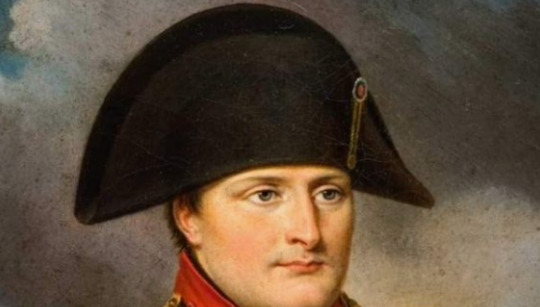
Notes of an Interview with Bonaparte at St Helena on the 13th August 1817, written by Captain Basil Hall, Royal Navy.
#basil hall#the amherst embassy to china#where... they refused to meet the emperor because they didn't want to kowtow#and then went to korea and okinawa before going to st. helena#where napoleon hears about china and gives posterity his “sleeping giant” comment#ramble#am i projecting?#napoleon bonaparte#kingdom of ryūkyū#okinawa#ryūkyū islands
34 notes
·
View notes
Text
[The doorbell rings and Dirk warps on to the transportalizer right next to the front door because walking is for chumps, and also because he lives in a fuck off massive mansion that he and Jake decided it was a swell idea to live in at the tender age of 16.]
[He sees a glimpse of bleached blond hair and purple and instinctively goes to close the door despite knowing who the fuck it is because this is Dirk Strider, of course he's got the best home security of all the other Gods of Earth C. A foot comes between his half-hearted attempt and he lets up just as fast.] [Rose and Dirk stare at each other appraisingly for a moment. His gaze flits over to the shoddy bindle she's holding, then to car parked directly on top of the mailbox out front. It wasn't seeing any use due to the fact he lives in the middle of fucking nowhere, an ironic gesture more than anything, but because of that same fact, it would seem that Rose had uncaptchalogued the car there on purpose and just flew here.] DIRK: Who's car is that? ROSE: My wife kicked me out. DIRK: Okay. ROSE: You don't think I have a car? DIRK: I respect the fact you alchemized a car just for the banished husband shtick. ROSE: The seats came pre-stained with cigarette residue and burns all over. I thought about camping there for the night parked at a motel, but the energy was too depressing. ROSE: Thought maybe a drastic change of natural scenery be more fitting of an crisis. DIRK: Isn't the point of exile as a punitive measure that you are supposed to reflect on your actions? ROSE: They put Napoleon on ST. Helena, did they not? DIRK: Are you comparing my house to a remote island right now? ROSE: I wasn't, but perhaps there is a point to be made here about your choice in local. DIRK: Not a great way to ask someone for a favor. ROSE: ROSE: I- [He steps away from the door and turns around, expecting her to follow in. She does, hesitantly.] DIRK: Call her tomorrow, it's best to clear the air as soon as you can. ROSE: I wasn't expecting a therapy camp. [He shrugs, points down a hall when she's close enough.] DIRK: Take a left then the fourth door down should have a clean room. ROSE: What's in all the other doors? DIRK: Stuff. ROSE: Oh, I see. DIRK: I'm coming by tomorrow morning. ROSE: Highly unnecessary, I'll be leaving by noon. DIRK: Where to? ROSE: I fail to see how that is any of your concern. DIRK: Perhaps. [He doesn't say anything more, and she takes it as a cue for her to leave. Her steps stutter when he speaks again.] DIRK: Don't immediately expect people to not want you around as soon as they show frustration. ROSE: Wonderful, well I'll be sure to pass that fortune cookie tidbit to the next person... [She turns around to find he isn't there anymore, peeved that she wasn't able to get the last word in.] [The walk there is stuffed with random objects, like if a geek store barfed all it's merchandise stock into an 8 foot wide hallway. She has to shimmy past a bust of Spiderman's head on the way, but she makes it to a plain room and a bed with orange sheets.] [She tosses the stick to the ground, and unties the cloth to fetch the small photo book she didn't have an opportunity to use as a prop for. She pointedly does not flip through the pictures she has of Kanaya and captchalogues it for safe keeping.] [Against her better judgement, she checks her phone messages and it opens to her last text with Kanaya saying she's going out to cool off, her text responded to with a single thumbs up. She contemplates jumping out of the window before opening the new texts from Dirk.] TT: http:/goo.gl/WjfJ2 TT: Marked everything you would need on the floor plan. TT: What's the large obstructed section on the bottom right? TT: Horse statue. TT: Naturally. TT: I'll be at your room by 9 AM. TT: Le sign.
45 notes
·
View notes
Text
I feel like “random rocky mid-Atlantic island inhabited by about 200 British people and some interesting birds” is an underutilized niche for “fictional country you think might be real until you look it up”. You could set a really interesting story on composite not!St. Helena/not!Tristan da Cunha/not!Falklands with a history of invasions, volcanic eruptions, and Napoleon dying mysteriously.
246 notes
·
View notes
Text

St. Helena Island SC
4 notes
·
View notes
Text

Napoleon I dictating his memoirs to General Gourgaud - St Helena Island
by Charles Auguste Steuben
Portrait of Napoleon I at Saint Helena in a room at Longwood dictating his memoirs to General Gourgaud.
#napoléon bonaparte#napoleon bonaparte#saint helena#st helena#art#charles auguste steuben#exile#prisoner#napoleon i#france#french#general gourgaud#history#europe#european#napoleonic#napoleonic wars#memoirs#portrait#island#atlantic
63 notes
·
View notes
Text

The Island of St Helena by George Lambert (1700 - 1765)
82 notes
·
View notes
Text
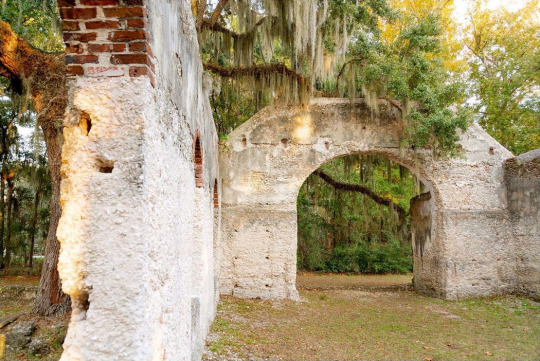
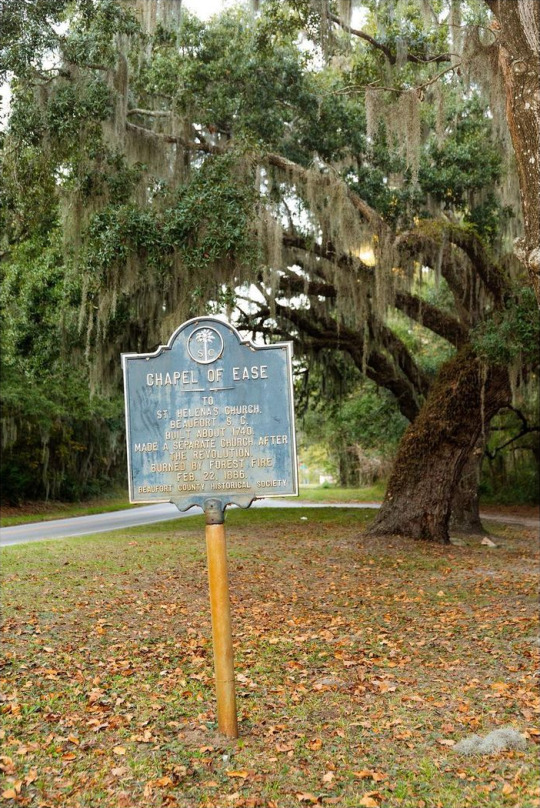
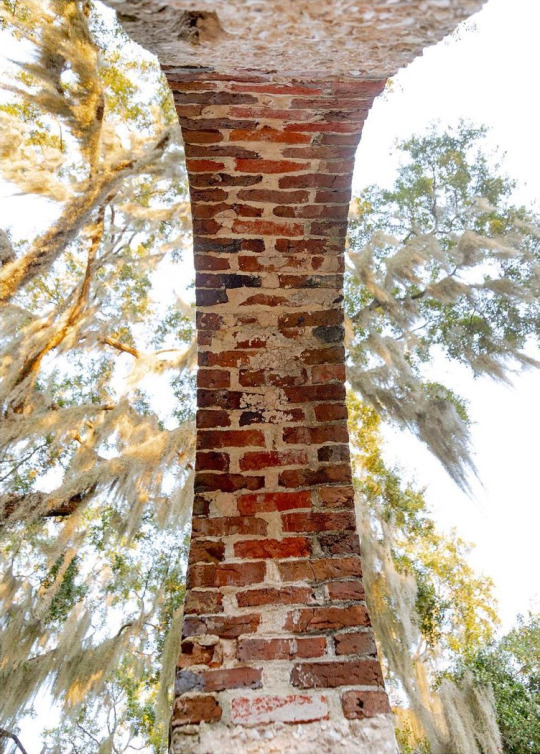
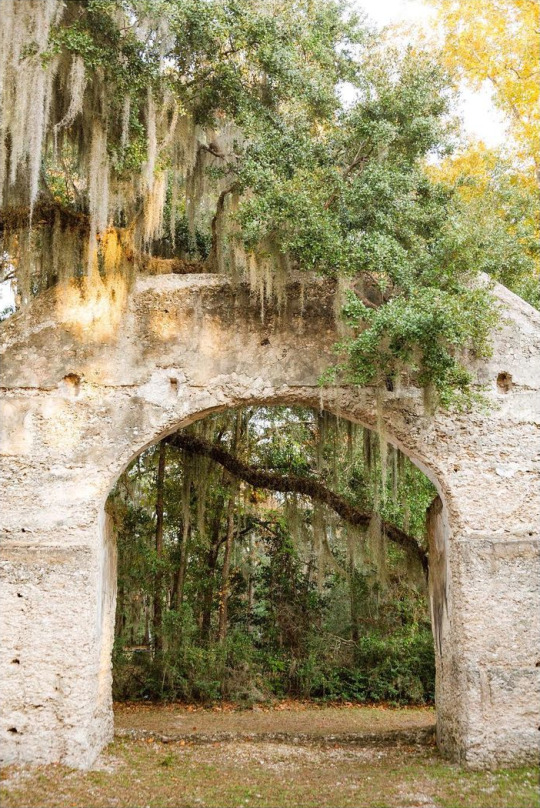
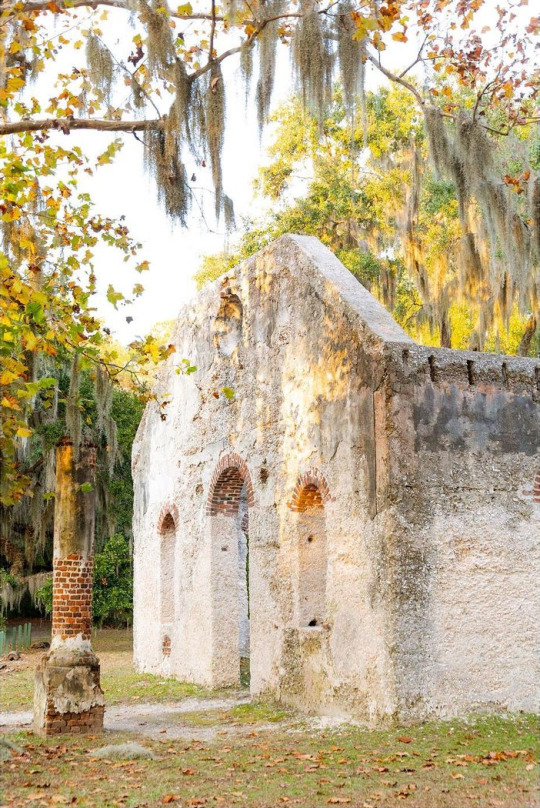
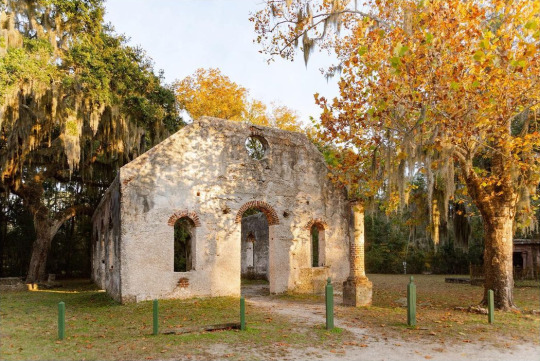
Chapel of Ease Ruins in St. Helena Island, South Carolina. Photos by Kim Graham.
83 notes
·
View notes
Photo

OnThisDay in 1821, after more than 5 years in exile on St Helena, #Napoleon died. While imprisoned on the remote island, le petit caporal started learning English. One resident of the island called his English “the oddest in the world”. — https://publicdomainreview.org/collection/napoleons-englich-lessons #OTD
84 notes
·
View notes